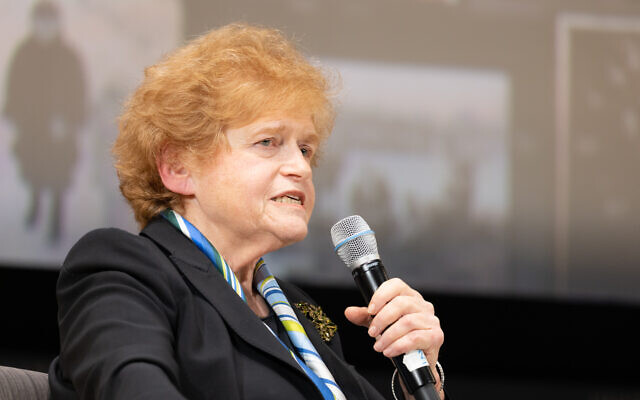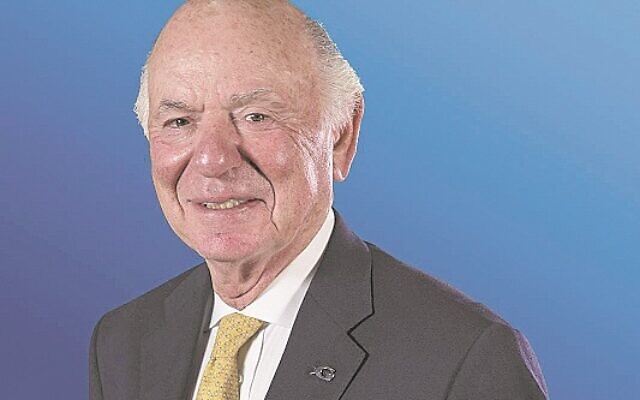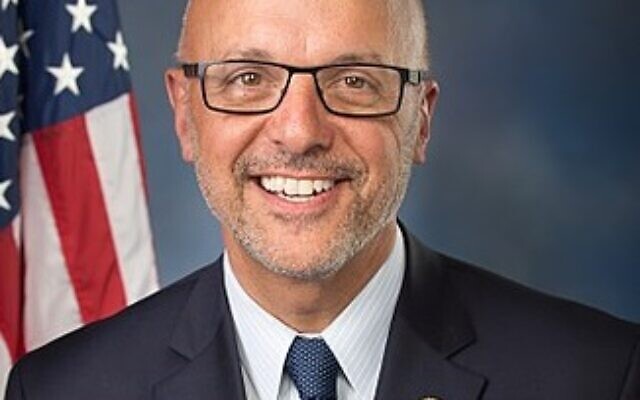Lipstadt Lauds White House Antisemitism Report
Sixty-page document receives mostly accolades among Jewish organizations.
Not surprising for an historian, but when Ambassador Deborah E. Lipstadt spoke at an impromptu briefing just hours after U.S. President Joe Biden presented the U.S. Strategy to Counter Antisemitism, May 25, she pointed out the significance of the location of the briefing – in the Eisenhower Executive Office Building, which once housed the U.S. State Department.
Lipstadt related stories of how the State Department worked against bringing European Jews to the U.S., an effort that would have saved the lives of both adults and children during the Holocaust.

Now, exactly one year after she became the country’s Special Envoy to Monitor and Combat Antisemitism, Lipstadt – who took a leave of absence from Emory University, where she was Dorot Professor of Modern Jewish and Holocaust Studies – heralded the bipartisan effort that produced the 60-page document. “This is an historic moment.”
“In my initial statements [as Ambassador], I emphasized the need to take antisemitism seriously.” The report, she said, indicates that the Biden administration “recognized this problem.” Antisemitism, she added, has only worsened in recent years. But the report “is not just to be put on a shelf.” It contains timelines; “it’s an action plan.”
The White House states that the strategy includes more than “100 new actions the administration will take to raise awareness of antisemitism and its threat to American democracy, protect Jewish institutions and communities, reverse the normalization of antisemitism, and build cross-community solidarity to fight antisemitism. It also makes over 100 calls on Congress, state and local governments, the private sector, and civil society to take steps to counter antisemitism.”
A week after the White House released its report, Lipstadt spoke at a webinar hosted by the White House and the Anti-Defamation League, as many Jewish organizations weighed in on the significance of the report.

Philanthropist and Jewish Future Pledge founder Mike Leven stated, “As a proud Jewish-American and co-founder of the Jewish Future Pledge, I’m pleased to see our government finally taking a step to fight an ancient problem that has reoccurred to a level never seen in many years across our country. This critical step addresses the rising tide of hate and discrimination against Jews worldwide, and one that has taken too long for our government to make.
“I am hopeful that the U.S. National Strategy to Counter Antisemitism will be successful, and I hope that it combats antisemitism in all its forms. We need to educate people about the dangers of hate, build bridges between different communities, and hold perpetrators of antisemitic violence accountable,” Leven said in a statement.
I am hopeful that the U.S. National Strategy to Counter Antisemitism will be successful, and I hope that it combats antisemitism in all its forms. We need to educate people about the dangers of hate, build bridges between different communities, and hold perpetrators of antisemitic violence accountable.
The reactions to the government’s antisemitism report unfolded as the trial of Robert Bowers – accused killer of 11 Jewish worshipers at the Tree of Life synagogue in Pittsburgh – got underway. Bowers is charged with 63 federal charges in connection with the Oct. 27, 2018, shooting as well as hate crime-related counts that could result in the death penalty. His lawyers are not disputing the shooting but contend that no hate crime was involved.
In a statement released the day the White House made its announcement, the Jewish Council for Public Affairs’ CEO, Amy Spitalnick, said, “Jewish safety is inextricably linked to the safety of other communities and the health and vibrancy of our multiracial democracy. As we see antisemitism and extremism increasingly normalized in our politics and our society, the urgency of this framework is even more clear. And it’s precisely what I’ve advocated since the first roundtable at the White House nearly six months ago. I’m heartened by the Biden administration’s whole-of-government strategy, which, at its core, recognizes that combating antisemitism requires protecting and advancing our democracy and the fundamental rights and safety of all communities – just as those goals require confronting antisemitism.”

The ADL and the JCPA were not the only Jewish organizations to participate in what Lipstadt called a “team effort,” that included non-Jews and more than two dozen U.S. agencies across the country that contributed to the strategy.
Ted Deutch, CEO of the American Jewish Committee, cited 10 reasons for his belief that “this is a monumental moment for AJC, our community, and for America.” Among those reasons, he said, were the facts that it called for steps to be taken not only by the federal, state, and local governments, but also businesses and universities.
“Addressing antisemitism on college campuses and in K-12 schools, the National Strategy promotes a host of initiatives, many of them from AJC’s Call to Action, including an awareness and education campaign for university, elementary, and secondary education through the Department of Education,” he said.
CEO of the Jewish Democratic Council of America, Halie Soifer, welcomed the White House’s announcement, saying that “President Biden’s national strategy to counter antisemitism is the most ambitious and comprehensive effort in U.S. history to fight this dangerous scourge of hate.” She added that her organization was “proud to have been a part of the coalition of organizations that participated in listening sessions with the White House that led to the creation of this strategy.”
On the other hand, CEO of the Republican Jewish Coalition, Matt Brooks, expressed his “deep disappointment” in the Biden administration for not exclusively using the International Holocaust Remembrance Association definition of antisemitism, favored by many Jewish and non-Jewish organizations. “Joe Biden had a chance to take a strong stand against antisemitism and he blew it,” he said.
However, the AJC noted that the first part of the White House report was “a reaffirmation of the administration’s embrace” of IHRA. And William Daroff, CEO of the Conference of Presidents of Major American Jewish Organizations, said he “wholeheartedly applauds the Biden administration’s continuing embrace of the International Holocaust Remembrance Alliance (IHRA) definition of antisemitism, which is the most universally accepted definition of antisemitism.”
Likewise, Israeli Ambassador to the U.S., Michael Herzog, commended Biden “for prioritizing the need to confront antisemitism in all its forms. We welcome the re-embracing of the IHRA definition which is the gold standard definition of antisemitism.”
In her briefing the day the document was released, Lipstadt perhaps anticipated some criticism of the report. She said that she often told her Emory students, “if you read a 60-page document and you don’t find something to disagree with, then you’re not reading it carefully.”
- News
- Local
- Jan Jaben-Eilon
- Ambassador Deborah E. Lipstadt
- Joe Biden
- U.S. Strategy to Counter Antisemitism
- Emory University
- Antisemitism
- Anti-Defamation League
- Jewish Future Pledge
- Mike Leven
- Tree of Life
- Robert Bowers
- Jewish Council for Public Affairs
- Amy Spitalnick
- Ted Deutch
- American Jewish Committee
- Halie Soifer
- Matt Brooks
- International Holocaust Remembrance Association
- Conference of Presidents of Major American Jewish Organizations
- William Daroff
- Michael Herzog




comments